This is the follow up podcast discussing Bob Dylan’s bizarre excursions into weirdness that have come to be known as The Basement Tapes….
Please click on ‘Watch on YouTube’ in bottom left hand corner, like and SUBSCRIBE… thanks…
SOME EXTRACTS…..
Million Dollar Bash is undoubtedly a romp, particularly suited to live performance, although Dylan has only performed it live once (in 2005). It has been covered by many artists including Fairport Convention, who put out a drunkenly raucous version on their classic album Unhalfbricking (1969). Like The Mighty Quinn, it can be read as an extremely ‘left field’ comment on the falseness of the trappings of fame in general. It may also be another very coded statement about why Dylan has retreated from the ‘media circus’ of being in the public eye. It shows the ‘big party’ that all the characters are headed for to be an essentially hollow and meaningless event.

Dylan takes the genre of the ‘drunkard’s song’ to the extremes of comic absurdity in Please Mrs. Henry, which again features a chorus that Dylan and his band members can relish while delivering the plaintively desperate and befuddled cry of …Please Mrs. Henry, Mrs. Henry please… (repeated)… I’m down on my knees/ And I ain’t got a dime… The song begins with the rather splendid declaration that …I’ve already had two beers and I’m ready for the broom… which rhymes neatly with the request to Mrs. Henry (presumably a landlady of a drinking establishment of some kind) to …Take me to my room… The song is delivered with a kind of distinctively drunken logic, including a line few of his fans could ever believe Dylan would deliver: …I’m a good ol’ boy… a favourite expression of Southern ‘crackers’. The inebriated narrator declares that he has been …sniffin’ too many eggs… and later boasts, in a surreal quatrain that stretches ‘animal metaphors’ to the limit: …I can drink like a fish/ I can crawl like a snake/ I can bite like a turkey/ I can slam like a drake…
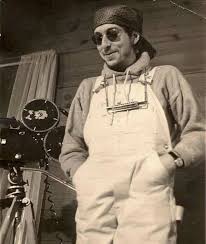
Lo and Behold is another bizarre absurdist travelogue. Here Dylan pushes his experimentation with nonsense verse to the extreme. The song could be said to be satirising those who expect him to be some kind of prophetic truth teller or the ‘voce of a generation’. The expression in the title, which has a Biblical origin, is usually related to a surprising revelation, but is frequently used ironically to indicate disappointment at something that is not really new at all. In this song the narrator appears to feel hemmed in or trapped by expectations of him, and so reverts to nonsensical explanations. The song features another simple chorus: …Lo and behold, lo and behold/ Looking for my lo and behold/ Get me out of here my dear man… to which Manuel and Danko add comically exaggerated vocal harmonies. Dylan speaks rather than sings the lines in the verses, in the manner of country vocalists in their more moralistic moments. Half way through the first of the two Basement Tapes versions, Dylan collapses in laughter after accidentally repeating a lyric. But this only adds to the charm of the piece, which features the first person narrator engaging in unlikely travels across the USA. At first he sets out from San Antone in Texas, arrives in Pittsburgh, announces his intention to go …down to Tennessee… but ends up back in Pittsburgh again. The woman who he is supposed to meet in San Antone never materialises. His travels are beset by absurd difficulties. On his first journey we hear that …the coachman he hit me for my hook… The reference to a ‘coachman’ seems to place the action in the distant past but the phrase, though comically resonant, is deliberately obscure. We also hear that, when the narrator tells the coachman his name, he ‘hangs his head in shame’. But none of this is really explained.
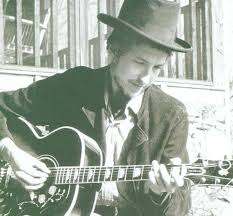
The second verse is the most wildly surreal and hilarious. When the narrator arrives in Pittsburgh we hear that …I found myself a vacant seat/ And put it down my hat… The following lines consist of a very weird conversation for which we are given no context: …What’s the matter with you Molly dear?… The narrator asks …What’s the matter with your mound… She replies …What’s that to you, Moby Dick? This is chicken town!… At a stretch, one might see these names as references to James Joyce’s Molly Bloom, famed for her explicitly sexual monologue in Ulysses, and Herman Melville’s classic. The use of the terms ‘mound’, ‘dick’ and ‘chicken’ may be sexual innuendo. The narrator certainly seems to be searching for some kind of sexual fulfilment, which he clearly will not ever find. In the third verse he tells us he buys his girl …a herd of moose/ One she could call her own… But the next day she comes back to him enquiring where they had flown away to. The narrator’s response is to vow to …get me a truck or somethin’… and to run away to Tennessee. To express the futility he feels, he memorably declares that he will …Save my money and rip it up!… The journey back to Pittsburgh is carried out on a ferris wheel. ..Boys I sure was slick… he boasts, telling us he will …Round that horn and ride that herd… Whether he is referring to the ‘herd of moose’ is unclear. Lo and Behold is arguably the most ‘nonsensical’ of these songs. Its narrator is searching for something but, like Mr. Jones in Ballad of a Thin Man, he really does not know what it is.
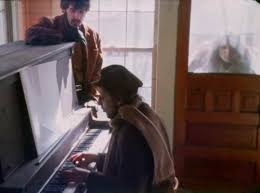
Another song which is marked by sexual innuendo is Goin’ to Acapulco, a languid ballad with some highly emotive vocalising by Dylan, backed by a distinctive swirling organ from Hudson. In terms of its subject matter the song (which at 5.25 is one of the longest in The Basement Tapes) is a clear precursor to The Band’s masterpiece The Weight which appears on Music from Big Pink. There is even a distinctive chord progression at the end of each chorus which appears in Robbie Robertson’s song. As in The Weight the protagonist is a dissolute fellow who resolves his troubles by visiting his favourite prostitute. Danko and Manuel again add strong support to the choruses. The song is a kind of intimate confession, perhaps of the kind of sexual incontinence that those who become famous stars may fall victim to. As Dylan proclaims, a little menacingly …I’m just the same as anyone else when it comes to scratching for my meat… He tells us that Rose Marie, the prostitute …Never does me wrong/ She puts it to me plain as day/ And gives it to me for a song… The use of the expression ‘for a song’ generally indicates an especially cheap deal. But here the intimation may be that the narrator is someone who, like Dylan, sells himself through his songs and thus is himself a kind of ‘prostitute’. …It’s a wicked life… the narrator proclaims …But everybody’s got to eat… It is later suggested that, given all the ‘free service’ he gets at Rose Marie’s, he is some kind of pimp …It’s not a bad way to make a living… he tells us in an aside …And I ain’t complainin’ none… The sexual innuendo in …I can pull my plum and drink my rum… is fairly obvious here, as it is in the later …Every time the well breaks down I just go pump on it some…
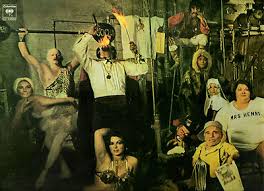
Open the Door, Homer uses nonsensical logic in a different way. The song has another rousing chorus: …Open the door, Richard, I heard it said before/ Open the door Richard/ And I ain’t gonna hear it said no more… Open The door, Richard was a very popular song widely featured in minstrel shows in the 1940s, in which blackface performers (some of whom were actually African Americans) acted out the scenario of a drunken man knocking on a door and trying to gain admittance. Why Dylan chose to use this phrase instead of the apparent title of the song is something of a mystery. It might be argued that in naming the song he was making some kind of reference to the author of the foundational texts of Western literature. Homer did indeed ‘open the door’ to epic forms of storytelling. But the ‘Richard’ reference makes more sense as the song introduces us to a series of apparently nonsensical paradoxes that cannot, by their nature, be explained logically. These strange homilies will never help gain admittance to wherever the door leads to. It might be argued that the door leads to a world of everyday ‘common sense’.
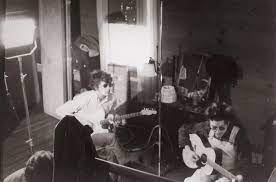
Perhaps the most appealing of this group of songs is You Ain’t Goin’ Nowhere, which has attracted multiple cover versions and has become an ‘alt country standard’. It was played around hundred times on the Never Ending Tour between 1997 and 2012. A whimsical piece of supposed ‘nonsense’, with an attractive and catchy melody, it is built around another logical paradox, with a sweetly appealing chorus: ...Ooo-eee, ride me high/ Tomorrow’s the day/ My bride’s gonna come/ Ooo-eee, we’re gonna fly/ Down in the easy chair… The Byrds’ version on their first ‘country rock’ album Sweethearts of the Rodeo (1968) is perfectly paced, with the addition of a mournful steel guitar. There are two versions in The Basement Tapes, the first of which appears to have mostly ‘dummy lyrics’. By the time the second take is recorded, Dylan has refined the song considerably. It now opens a quite exquisite run of two rhyming couplets: …Clouds so swift/ Rain won’t lift/ Gate won’t close/ Railings froze… Dylan grew up in and is thus highly attuned to the weather of the ‘North Country’. Here he delights in the beauties of winter. The narrator appears to be addressing someone who has no choice but to stay put. He is probably addressing himself. But, unlike the frustrated protagonist of Open the Door Homer, he has nothing to prove. The song has often been linked to Dylan’s period of recuperation after his motorcycle accident, when he was indeed trapped in an easy chair while his mind was ‘riding high’ with new perspectives and ideas.
LINKS….
This site uses Akismet to reduce spam. Learn how your comment data is processed.


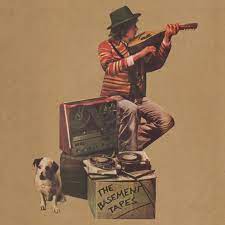
Leave a Reply